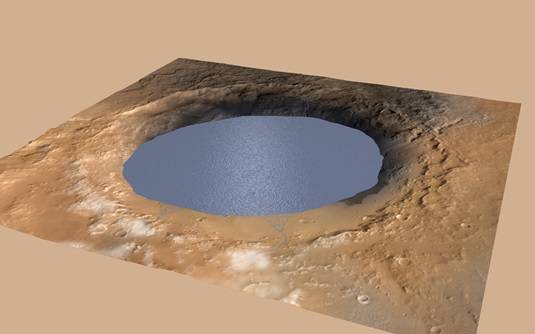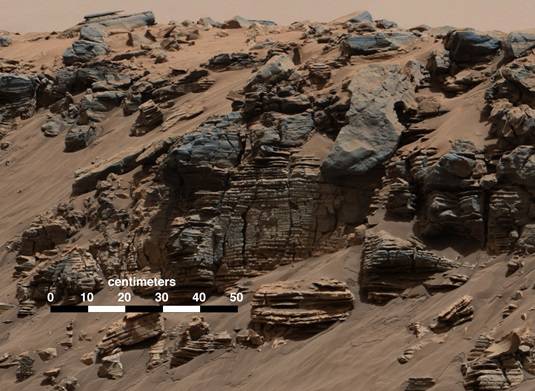Mars was a MOIST MISTRESS: Curiosity probes once-wet bottom
Mount Sharp was immersed, nuclear droid finds
The nuclear powered Curiosity rover – right now rolling across three-mile-high Mount Sharp on Mars – has found evidence the great peak was once under a mighty lake.

A few billion years earlier and Curiosity would have needed water wings
"We are making headway in solving the mystery of Mount Sharp," said Curiosity Project Scientist John Grotzinger of the California Institute of Technology in Pasadena, California. "Where there's now a mountain, there may have once been a series of lakes."
Curiosity has already discovered the remains of an ancient riverbed on the Red Planet, but the latest discovery gives evidence of not only free-flowing water but large lakes that rose and fell over time.
"If our hypothesis for Mount Sharp holds up, it challenges the notion that warm and wet conditions were transient, local, or only underground on Mars," said Ashwin Vasavada, Curiosity deputy project scientist at NASA's Jet Propulsion Laboratory.
"A more radical explanation is that Mars' ancient, thicker atmosphere raised temperatures above freezing globally, but so far we don't know how the atmosphere did that."

Sedimentary rocks at Mount Sharp
Analysis of the route to Mount Sharp shows the rover ran over what look like a series of hillocks that are similar to those found in dried up river deltas here on Earth. At the base of the mountain, Curiosity spotted layers of sedimentary rock interspersed with erosion caused by the wind during repeated filling and emptying of the lake.
"The great thing about a lake that occurs repeatedly, over and over, is that each time it comes back it is another experiment to tell you how the environment works," Grotzinger said.
"As Curiosity climbs higher on Mount Sharp, we will have a series of experiments to show patterns in how the atmosphere and the water and the sediments interact. We may see how the chemistry changed in the lakes over time. This is a hypothesis supported by what we have observed so far, providing a framework for testing in the coming year." ®
Keine Kommentare:
Kommentar veröffentlichen